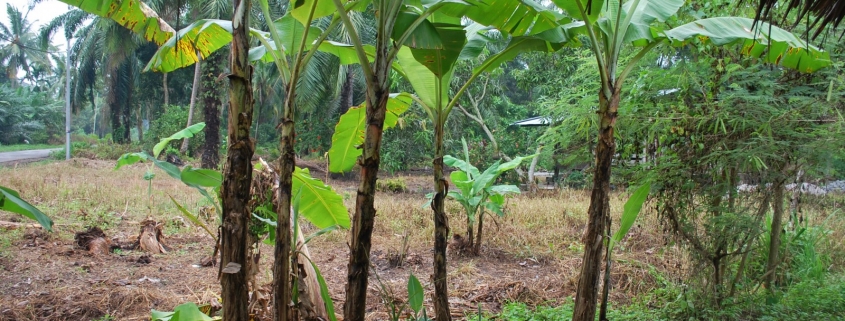HotSpots H2O: In Malaysia, the Mah Meri Resist Eviction from Coastal Homeland

Mah Meri village © Tian Yake / Flickr Creative Commons
- In Malaysia, a proposed beach resort dubbed a “world-class eco-city” is threatening to evict Mah Meri families from one of their oldest coastal towns, what is today known as Bagan Lalang.
- The notices arrived in late April, and gave families 30 days to move out, Mongabay reports. The timing coincided with the state giving a lease for the land to Sepang GoldCoast resort.
- The Mah Meri will be fighting the case in court, and are optimistic. In 2002, courts ruled in favor of the Temuan, a tribe that had been served eviction notices in 1995 by Malaysian state authorities.
Christian Thorsberg, Circle of Blue
For over 500 years, the Mah Meri have called the tropical, southwest coast of Malaysia home. One of the peninsular nation’s 18 recognized Indigenous groups, the Mah Meri have ancestral lands that are located 50 miles south of Kuala Lumpur and comprise both beachfront shores and the lush inland banks of the Klang River. Across waterways and mangrove expanses, rolling mudflats and ample fishing spots, the Mah Meri’s centuries-long relationship with the ecosystem has been one of mutual care and conservation.
But, as is the case for Indigenous tribes across the world, outside development has been hard to resist in the face of political indifference and corporate heft. In Malaysia, the palm oil and tourism industries have gradually arrived, shrinking the area’s forests and pristine coastline, land crucial to the Mah Meri’s subsistence. And now, a proposed beach resort dubbed a “world-class eco-city” is threatening to evict Mah Meri families from one of their oldest coastal towns, what is today known as Bagan Lalang.
The eviction notices arrived in late April, and gave families 30 days to move out, Mongabay reports. Having built over 30 houses in the past few decades, the notices said, the Mah Meri had illegally infringed upon government land. If found guilty, the residents would be subject to a five-year jail term or $118,000 fine, or both. “You are required to empty the land and return occupation peacefully to PNSB within 30 days of this notice, and all costs will be borne by you, and you are not allowed to seek any form of compensation,” the notice also said.
The timing of the notices was curious. Less than two weeks earlier, PNSB–Permodalan Negeri Selangor Bhd, the investment sector of the Malay state’s local government–had given a 99-year lease for the Mah Meri’s land to Sepang GoldCoast resort. Though the resort claims in legal documents that the Orang Asli (the collective term for Malaysia’s Indigenous peoples) will still have access to their coastal land, past instances of ecotourism development, where similar pledges had been made, have demonstrated that these sorts of promises are often hollow.
“The state government will try to do anything and everything, whatever they like, without the Orang Asli knowing, but the courts have time and again confirmed these ancestral land rights,” Siti Kasim, a lawyer who helped convince the Mah Meri to take the fight to court, told Mongabay. “Legally, it’s not about the fact that they’ve had settlements for 20 years. It’s about the fact that they have been occupying and using the land for 500.”
The Mah Meri have resisted the evictions they’ve been served, and are choosing to fight Sepang GoldCoast in court. Residents are optimistic they will be able to keep their land, and indeed have a winning history on their side: in 2002, in a landmark Malaysian land rights case, courts ruled in favor of the Temuan, a tribe that had been served eviction notices in 1995 by state authorities. Their inland territory, less than an hour from the Mah Meri coastal community, was protected. The serving justice at the time condemned the state, saying they “cannot make the Orang Asli victims of their own negligence.”
Christian Thorsberg is an environmental writer from Chicago. He is passionate about climate and cultural phenomena that often appear slow or invisible, and he examines these themes in his journalism, poetry, and fiction.






Leave a Reply
Want to join the discussion?Feel free to contribute!